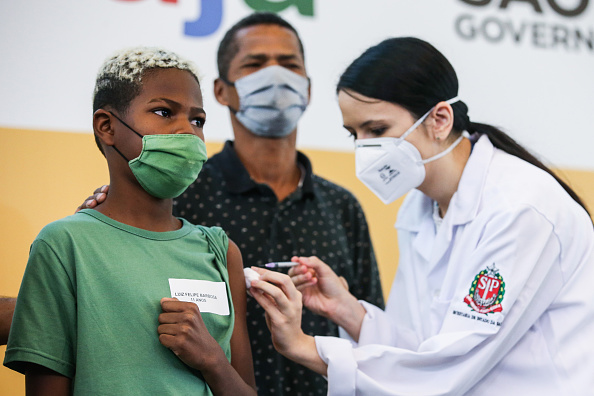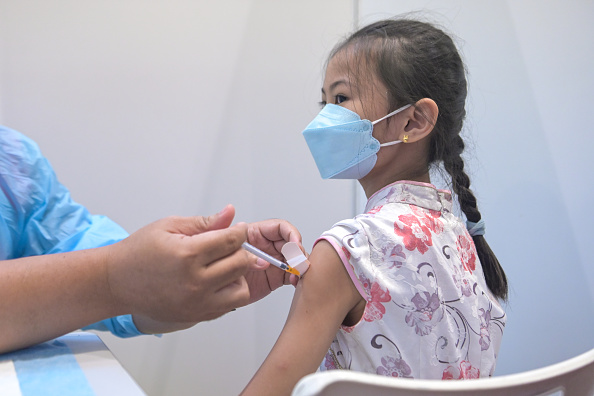
Some parents are hesitant to have their children vaccinated against COVID-19. Pediatricians are in a unique position to help drive COVID-19 vaccine discussions with parents and ease caretakers’ concerns. Here’s how they can accomplish that.
The FDA approved a COVID-19 vaccine for children ages 5 to 11 in late October, providing a welcome tool to help pediatricians protect their patients. According to the American Academy of Pediatrics, more than 12.9 million children have tested positive for the virus. And those who were not vaccinated against COVID-19 have seen worse outcomes. For example, one study found that twice as many unvaccinated children ages 5 to 11 were hospitalized, compared with their vaccinated peers as the Omicron variant spiked earlier this year.

Despite these developments and statistics, COVID-19 vaccine hesitancy persists among parents. According to the Kaiser Family Foundation, 36% of parents with children ages 5 to 11 years old say they definitely will not get them vaccinated. Meanwhile, only 11% will only have their children vaccinated if mandated, and 10% are taking a wait-and-see stance.
Some parents cite access and transportation issues, as well as reservations about second doses and boosters. Others harbor a level of distrust and express a desire to learn more about the vaccine, including how it affects other children. Vaccine hesitancy may also be higher among parents of color, suggesting it could exacerbate health inequities that have been heightened by the pandemic.
3 ways of easing pediatric COVID-19 vaccine concerns
So, how can pediatricians approach these delicate conversations, and also work to encourage and persuade parents to vaccinate their children against COVID-19? Here are three suggestions:
- Communication is key. Pediatricians can build greater trust with parents by inviting them to ask questions if they have concerns about the vaccine. They can also present parents with science-based information to answer questions and allay concerns. Some parents may need reassurance and empathy. Pediatricians can provide both to families, and also increase the odds of vaccination for their patients.
- Meet them halfway. Parents who are on the fence about vaccinating their children against COVID-19 may need more time and data to make a decision. Pediatricians can give these parents bite-size information on the vaccination. They can also personalize the conversation by sharing stories about their own children and the vaccine. However they approach the discussions, clinicians should treat parents as individuals and put reminders in their patients’ EHRs to check in periodically with concerned caregivers.
- Relationships matter. Pediatricians have a unique relationship with their patients and their caregivers. Some physicians have treated patients and cultivated relationships with their families since birth. The relationships and trust that pediatricians have built with parents of children under their care can go a long way toward persuading caregivers that the COVID-19 vaccine is effective and safe. In fact, a recent KFF survey found that nearly 80% of parents trust their child’s pediatrician “a fair amount” or “a great deal” to provide them with sound information on COVID-19 vaccination. Those bonds can serve as a strong foundation for combating vaccine hesitancy and boosting vaccination rates among children.
Pediatricians have always played a crucial role in arming parents with reliable information. They can do the same with COVID-19 by bringing a sensitive, science-based approach to vaccine discussions.
Meanwhile, COVID-19 vaccines for children younger than 5 may be approved in the coming months, so these conversations with parents could become more frequent and important. As trusted health care providers, pediatricians will be in a unique position to lead – and influence – the conversation with parents about the next phase of COVID-19 vaccination.
If you liked this article, sign up for Pediatrics Today SmartBrief. It’s among SmartBrief’s more than 250 free industry-focused email newsletters.
Doug Harris is a health care editor at SmartBrief. Connect with him on LinkedIn.